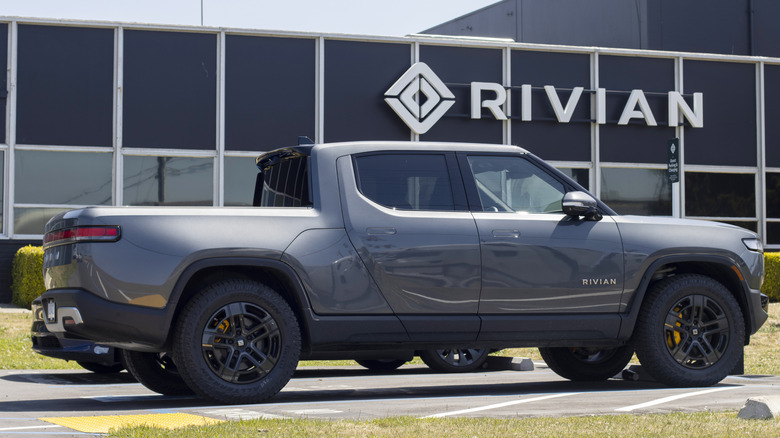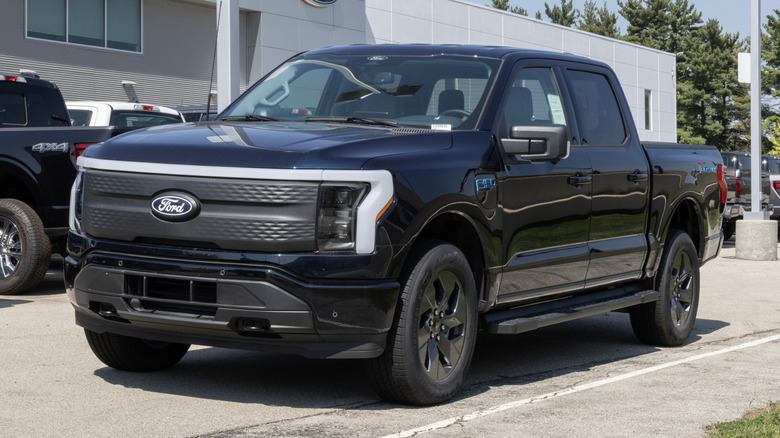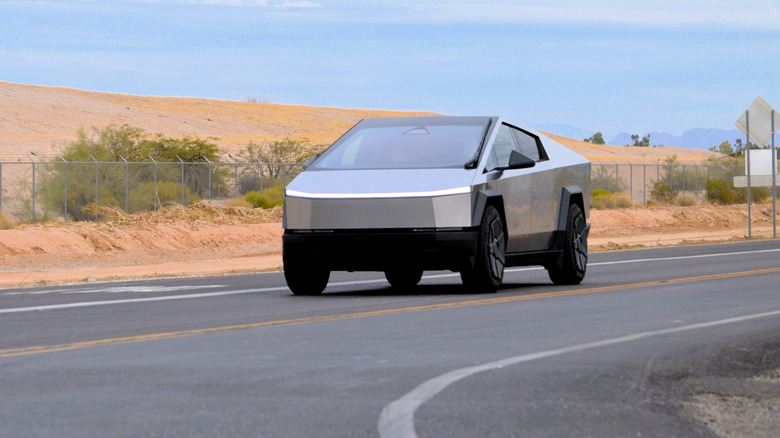Why Consumer Reports Show That EV Trucks Are Among The Least Reliable On The Market
Trucks are known as tough, strong, and versatile. They have to be to perform tasks like towing or hauling. Moreover, weak performance is not going to cut it for off-road adventures. At least, that's the case with standard gas-powered trucks. The electric variety, however, paints a different picture according to data from Consumer Reports. The information reveals that EV trucks are among the least reliable on the market. Some examples include the Rivian R1T, Sierra EV, Ford F-150 Lightning, and the Silverado EV. Notoriously, Tesla has issued recalls for the Cybertruck on numerous occasions.
As the name implies, Consumer Reports relies on present owners sharing their experiences through surveys and questionnaires. Vehicle scores factor in road-test performance, reliability ratings, safety ratings, and owner satisfaction. Another interesting development is that there's a slight disconnect between reliability ratings and consumer satisfaction. While EV trucks can be unreliable, it doesn't necessarily mean owners are unhappy with them — which is the case with the Rivian R1T.
Why are EV trucks the least reliable?
The reliability concern with EVs is not an anomaly that exists only with trucks. Overall, electric vehicles are still unreliable compared to hybrid and gas-only cars, though the gap is reducing quickly. In 2024, EVs had 42 percent more problems than gas cars, compared to 79 percent the year prior. However, EV pickups sell in much lower volumes, and they have different performance concerns. Truck powertrains require more power, so charging times can be significant for the batteries. Towing, hauling, and long-distance trips also require more power, which demands more from the batteries. This is the same reason electric RVs are being held back from going mainstream.
It appears that the powertrain in EV trucks is the culprit for poor reliability. Ford stated that the economics are unresolvable for large electric vehicles because of the demanding use cases. The 2023 Ford F-150 Lightning received a 19/100 reliability rating, compared to the 91/100 rating for the model with a conventional powertrain. Moreover, the Rivian R1T earned a 13/100 in reliability for the 2023 model year and a 21/100 for the 2022 model year. GM's Silverado EV earned a 30/100 or a 57/100, depending on the model.
Low reliability does not mean unsatisfied owners
What might seem strange initially is that, despite having lower reliability ratings, several EV owners are happy with their purchase. EV trucks still have a lot to offer, like quieter operation, solid performance, better range compared to gas trucks, and a fun-to-drive experience with instant torque when you accelerate. Not to forget, most EVs also have fancy interiors with a feature-filled interface. More importantly, it's also much cheaper to drive an electric vehicle in the long run.
Furthermore, poor reliability ratings are not an indicator of high repair costs. Many EVs have extended powertrain and battery warranties that come into play if and when there is damage to these components. Smaller issues can be remedied over the air with software updates. Mechanical and performance issues may be covered under the manufacturer's warranty. If you're interested in owning an EV truck, this could well be a sign for you to overlook those reliability ratings — within reason, of course.


